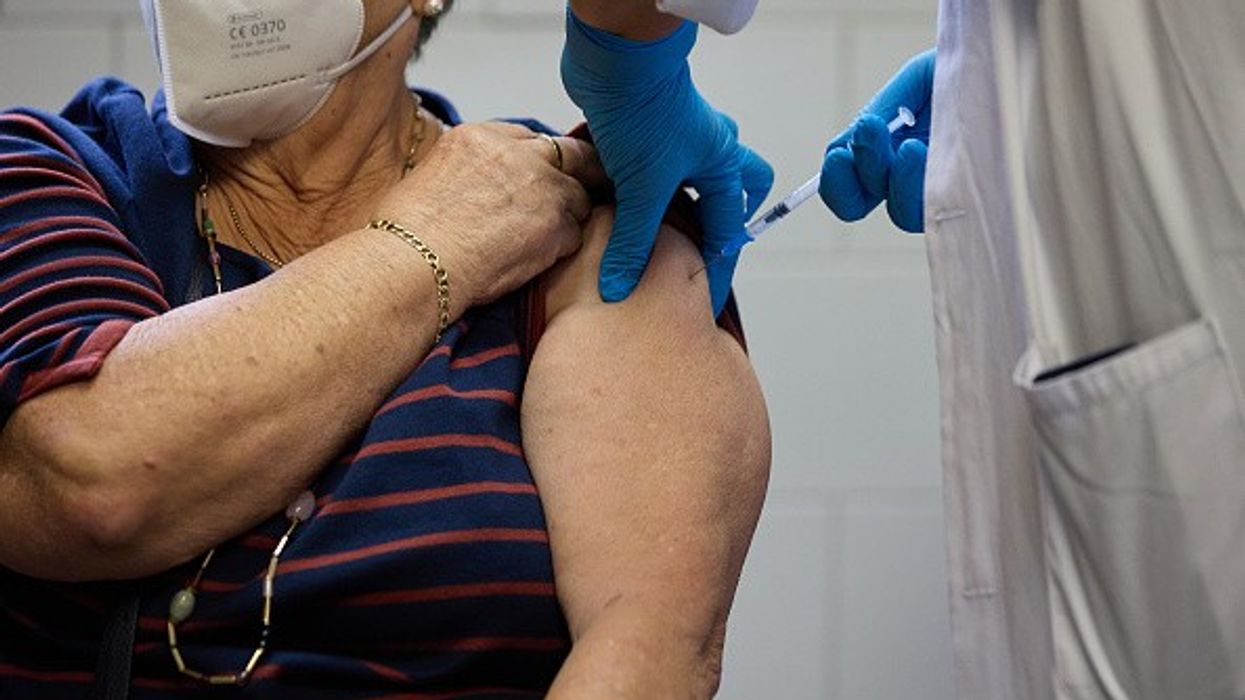People can search for local pharmacies online to book their flu jabs or visit designated walk-in sites for the COVID-19 vaccine
Pharmacies are urging people to get vaccinated as the NHS rolls out its flu and COVID-19 vaccination campaign to protect against a potential ‘tripledemic’ of viruses this winter.
Appointments are now available for eligible groups, including older adults, care home residents, and those with long-term health conditions. They can book their appointments via the NHS website, the NHS App, or by calling 119 for free.
Bookings opened on September 23, but hundreds of thousands of slots are still available, with GP practices, pharmacies, and other NHS teams offering quick and easy appointments.
People can search for local pharmacies online to book their flu jabs or visit designated walk-in sites for the COVID-19 vaccine. For example, a pharmacy team in Wolverhampton is operating a mobile vaccination unit in a Sainsbury’s car park.
Additionally, the Respiratory Syncytial Virus (RSV) vaccine is being offered to those aged 75-79 and pregnant women from 28 weeks to protect their unborn child.
Paul Rees, CEO of the National Pharmacy Association (NPA), highlighted the crucial role of community pharmacies in combatting these winter viruses, saying: “The country’s dedicated army of highly experienced pharmacy teams stand ready to protect millions from COVID and flu with vaccinations. Their local service is an essential part of our defence against seasonal illnesses and future pandemics.”
“This is yet another powerful reason to protect and nurture our amazing local pharmacy network which has suffered so badly from cuts. Pharmacies are hugely trusted by their communities, convenient and expert and can offer help and advice on people’s doorsteps.
“It’s so important for everyone who is invited to get a vaccine, which offers great protection against these seasonal diseases which in some cases can make people seriously ill,” he added.
The NHS has already invited over 11 million people to come forward for vaccinations. However, those who are eligible can book appointments without waiting for an invitation.
GP practices and other local NHS services are also contacting people to offer both vaccines.
As flu season usually peaks in December and January, starting adult vaccinations in October ensures that those most at risk are protected during the colder months when people gather indoors and viruses spread.
Figures from the UK Health Security Agency (UKHSA) revealed that over the past two winters, there were at least 18,000 flu-related deaths and more than 19,500 deaths associated with COVID-19.
Flu vaccinations for children and pregnant women began on September 1 to help prevent the spread of the virus as schools returned.
Steve Russell, NHS National Director for Vaccinations and Screening, emphasised the urgency, stating: “With new figures showing thousands of deaths associated with COVID and flu in recent years, it is clear that the threat of winter viruses is all too real, and it is vital that anyone eligible takes up the offer to get vaccinated.
“With the risk of a ‘tripledemic’ of winter viruses – COVID, flu and RSV – if you are pregnant or aged 75 to 79, it is also so important that you join those who have protected themselves against RSV in the last month to boost your or your child’s protection against a very nasty illness,” he added.
Beginning Thursday 3 October, the NHS COVID and flu vaccination programme was rolled out for:
- those aged 65 years and over
- those aged 18 years to under 65 years in clinical risk groups
- those in long-stay residential care homes
- carers in receipt of carer’s allowance, or those who are the main carer of an elderly or disabled person
- close contacts of immunocompromised individuals
- frontline workers in a social care setting without an employer led occupational health scheme including those working for a registered residential care or nursing home, registered domiciliary care providers, voluntary managed hospice providers and those who are employed by those who receive direct payments (personal budgets) or Personal Health budgets, such as Personal Assistants.













